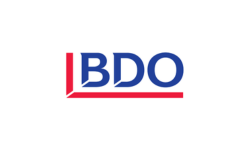Joining forces for shareholder democracy

Peter Fowler is Chief Operations Officer at Lumi Global, the leading digital platform facilitating in-room, hybrid and virtual AGMs, investor and member meetings for the world’s largest corporations and membership organisations. He can be contacted at https://www.lumiglobal.com/
Peter Fowler argues that despite the growth in shareholder democracy in 2023, there is a long way to go for true engagement between issuers and their retail shareholders.
In the past few months alone, the Government Digitisation Taskforce has called for a new shareholder ID system, aimed at providing companies with better insights into their investors. Meanwhile, the online investment service Interactive Investor wrote an open letter to FTSE 100 Chairs advocating for improved communication with investors throughout the year.
We’ve also seen retail shareholders stepping into the spotlight with newfound influence, thanks to companies making strides to boost shareholder rights by providing proxy voting.
Despite progress, significant hurdles remain on our journey toward achieving genuine shareholder democracy. The current landscape means businesses and shareholders continue to grapple with a complex web of red tape.
Collectively we are caught in a catch-22 scenario. On one side, many businesses remain hesitant to engage with retail investors due to common misconceptions about this group. On the flip side of the coin, companies looking to engage with retail investors face barriers and can't directly connect with their shareholders.
We delve into the difficulties facing businesses in bringing about true shareholder democracy and how the industry can work together to make this a reality.
The rise of the retail shareholder
The influence over major company decisions, once concentrated in the hands of institutional investors, has shifted dramatically. DIY investing apps have empowered individual retail investors, with their share ownership surging to 13.5%, marking a 32% increase since 2010.
Under the current share ownership system in the UK, when retail shareholders buy shares in companies through a broker or a nominee platform, the individual is not directly registered with their invested company.
Direct communication can only occur within the nominee platforms, but these platforms have no obligation to provide customers with information about the companies they invest in. Meaning that if they want to attend or vote at a company AGM, they must be appointed as a proxy; an extremely difficult process to navigate and results in the vast majority being excluded.
The motivations and expectations of shareholders has evolved, it's no longer solely about financial gain; instead, shareholders seek a platform to voice questions and concerns, but they are unable to do so.
If there was anything 2023’s AGM season taught us, it would be the importance of ongoing dialogue between the board and investors to understand and balance their wants and needs to prevent issues from spilling into the AGM.
With this in mind, it's not surprising that shareholders are finding themselves both disempowered and disconnected from the businesses they financially support. The current system isn’t just leaving retail investors in the shadows, it’s also causing businesses to miss out on some valuable advocates and partners.
Issuer-shareholder relationship at risk
The current format of the share ownership system not only curbs shareholders from having their voices heard but also prevents businesses from reaching out to invite them to company meetings.
Our Issuer Roadblocks Report interviewing over 200 Company Secretaries about the challenges they face inviting shareholders to AGMs, revealed that over half (60%) at public or listed firms holding meetings with over 500 attendees would like greater retail shareholder presence at AGMs. However, the desire for increased attendance runs headlong into complex challenges, meaning businesses are struggling to facilitate participation.
A third worry is about potential backlash if they fail to invite retail shareholders to the AGMs easily. However, they’re currently unable to adequately inform them before voting on resolutions. Many also worry that this lack of communication channels may lead retail shareholders to divest their shares.
At the same time, 43% admit to struggling to engage directly with their investors, facing barriers or challenges when accessing data held by intermediaries or brokers.
This lack of direct connection has ramifications on both ends. Not only are retail shareholders being locked out of meetings, but companies are being left uninformed about the identities of their investors and would like easier access to this information.
The convenience of investing through nominee platforms has inadvertently severed the direct link between companies and their retail shareholders. It’s no wonder in this case that shareholders admit to feeling uncertain when voting, the limitations of the current system are painstakingly clear.
Progress has been made – but there’s more to be done in 2024
While there is still a considerable journey ahead to achieve true shareholder inclusivity, one crucial step to including more shareholders is hosting hybrid meetings.
The reality is, hybrid meetings are essential for good governance. Companies can improve their relationships with stakeholders, enabling inclusivity before, during and after the live meeting. Investment platforms and registrars need to join forces with issuers to make this connection smoother.
The good news is that hybrid meetings are on the rise. Over three-quarters (79%) of global AGMs were either held hybrid or virtually in the first half of 2023, 26% higher than in 2021 (see https://bitly.ws/39V4P).
We’ve also seen retail shareholders stepping into the spotlight with newfound influence, thanks to companies like BlackRock, eToro, and Hargreaves Lansdown making strides to boost shareholder rights by providing proxy voting.
Moreover, initiatives facilitated by Lumi and involving M&S enabled thousands of nominee shareholders to attend AGMs for the first time through the UK’s first pilot project.
How can we bring about change?
We’re calling for industry-wide change to achieve true shareholder democracy. This involves encouraging a shift in board mindset, calling for updates to legislation and consensus across the industry among all parties in the proxy chain to work together.
There is a common misconception that retail investors attend AGMs merely to influence dividends or cause disruption. However, we found that the primary motivation for retail investors is to ask questions of the board, closely followed by a desire to make their voices heard. Just 29% want to influence dividends, showing financial gain is less important than influencing governance.
They are not the ‘wild west’ of investments, but rather a pivotal part of the landscape and it’s crucial for businesses to recognise the distinction between activist investors seeking to disrupt and those who want to express their views on important matters.
By recognising the potential of retail investors, businesses can leverage a variety of voices, allowing them to become more transparent, accountable, and successful. However, under current legislation, this communication is bound by red tape. There needs to be reform to share ownership to shape a new future for shareholder engagement.
We have seen more calls than ever for digitisation, such as those from the Government Digitisation Taskforce, spearheaded by Sir Douglas Flint.
We know that while legislative change takes time, immediate steps can and should be taken to necessitate the free-flowing information across the entire proxy chain.
We’ve seen from the progress made that by working together, we can open doors for retail investors, and this must become the industry standard. The future of shareholder engagement is one where inclusivity is prioritised, and barriers are dismantled, more needs to be done.
It highlights the potential when key players in the proxy chain work together to drive change. We're urging issuers, registrars, and investment platforms to come together and eliminate barriers for retail investors.
Companies must get ahead of this, embracing the critical role retail investors can play in shaping the future of business and work together to call for updated legislation and greater accessibility.
This article demonstrates the key findings within Lumi’s latest Report which can be found here: Issuer Roadblocks: Breaking down barriers to achieve shareholder democracy.
If you've enjoyed this content, subscribe today for
3 months free of our exclusive governance insights.
Register to receive our FREE Interim newsletter which alerts you to the latest information about the fast-developing world of corporate governance.








